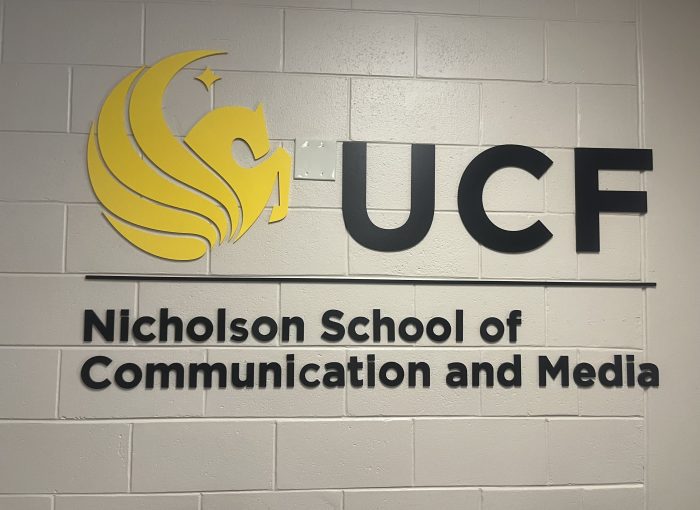by Isabella Whedbee
Office hours get a bad rap.
My initial reaction when I think about “office hours” is a silent-filled exchange between a student and a professor, followed by a half-hearted request for a grade change and an awkward denial of said grade change. Starting my first semester as a Freshman, I found myself gnawing over the notion of going to office hours. I knew that faculty always encouraged us to utilize this tool to enhance our class experience, but I had no idea where to even start.
I recently discovered that many students have the same beliefs and doubts. Classmates have shared with me that they’re worried about the reaction instructors will have to their questions. They also think that it’s too late or even too early in the semester to “introduce themselves.” While others just don’t know when or where office hours are being held.
It’s important to note that the transition towards Zoom may have unexpectedly created a gap between professor-student communication, making it even more difficult for students to take the office hours initiative.
The good news is that office hours don’t have to feel awkward or tricky with a capital T. In fact, these opportunities can be a low-stakes way to begin learning the course material in a deeper way. Below are some tips and tricks for students to use to make the “dreaded” event a lot better.
1. Office hours can be casual conversation
The first step towards managing office hours is to consider some questions you may want to ask your professor before the start of the meeting. Of course, there’s no need to go “overboard” with a comprehensive list, but having a rough idea of what you want to ask may make it easier on you during the moment. This can be about something interesting or complex about the curriculum. Like any general conversation, make sure you are also open to speaking about different topics. My first experience with office hours took place with my Honor’s speech professor.
As a student in the School of Communications, I really enjoyed the class, but I didn’t know how to approach meeting with the professor. I couldn’t wrap my brain around one specific question, so I just decided to go in and chat about our most recent project. Organically, the conversation went toward my favorite topic that we had discussed in class, storytelling. There’s really an endless number of in-class topics to choose from, but if you are still struggling, you can decide to talk about homework assignments, class materials, or even your professor’s background and what they enjoy about the industry. An uncomplicated way to impress your professor is to connect what you’re learning with some current industry news. And if all else fails, you can always just show up and let them know that you have no particular questions and “just wanted to say hi.” Works like a charm.
2. Explore non-office alternatives
So, you’ve arrived here. One of the two situations just occurred> You aren’t sure what to do, or you haven’t attended an office hour lately (or ever) and still feel some anxiety about doing so. There’s honestly no shame in still feeling these doubts. The good news is both paths have the exact same solution.
Reach out to your faculty outside of office hours. This can be done by just sending over an email or going up to them immediately after class. If this professor offers non-mandatory discussion boards, then participating in them may help you stand out. If you’re more comfortable chatting over Zoom, many professors are happy to provide that alternative to students.
This type of meeting was handy during the Fall of 2022. With two consecutive hurricanes during that semester, it was a challenge to continue communication with the UCF staff. Luckily, I was able to hold Zoom meetings and send emails to my professors. While the use of email isn’t exactly groundbreaking in 2023, an interesting thing that I learned is I could attach articles and resources that I found relevant to further enhance the topics we were discussing.
By using these alternatives to office hours, you will still be creating this “connection” without having to even meet face-to-face. If you’re still struggling with it, I highly recommend you use email or Zoom as a “stepping stone” to more interactions. Remember, the first step is always the hardest, but showing up is the key.
3. Put the professor’s advice into action
Now that you’ve left office hours or one of the alternatives, try to execute your professor’s advice, resources, or tips that they shared with you. A follow-up “Thank you” email is a great way to demonstrate that you were fully engaged and actively listening during your conversation. Even if the conversation did have moments of awkwardness, a follow-up is almost guaranteed to put things back on track.
After I attended an office hour with my speech professor, she decided to add more storytelling resources to the curriculum. For me, this not only demonstrated her active listening but also showed me that she truly wanted to improve the class, which made me feel incredibly valued and heard. I know that doing this for your professor will mean an incredible amount to them.
To sum it up:
If you’re nervous about making the leap to office hours, remember that most of the time it will vastly help you out more than cause you any harm. Overall, your professor will react better than you expect. There’s a good chance that being open to speaking with professors will lead them to share insightful career advice or even opportunities. However, you can never know if you don’t at least try. I highly encourage you to give office hours a chance. It may lead to a defining and great moment in your college career.
If you’re feeling stressed about utilizing any of your professor or advisor’s resources, just know that you are not alone. Developing this habit and ability to reach out to professionals will support you outside of school as well. Many professors, as well as professionals. are happy to connect students with career advice or even resources that can potentially support them as they advance through their early careers. However, until you share with them a little bit about yourself, the connection can never be authentically made.
Overall, there’s almost a definite chance that your professor is going to react better than you expect. We usually expect the worst when it comes to taking the initiative, but usually, it’s a lot easier once you get started. Even if the experience is sub-optimal, it won’t make a major difference over the next 5, 10, or even 20 years. I highly encourage you to give office hours a chance. It may lead to a defining and great moment in your college career.




